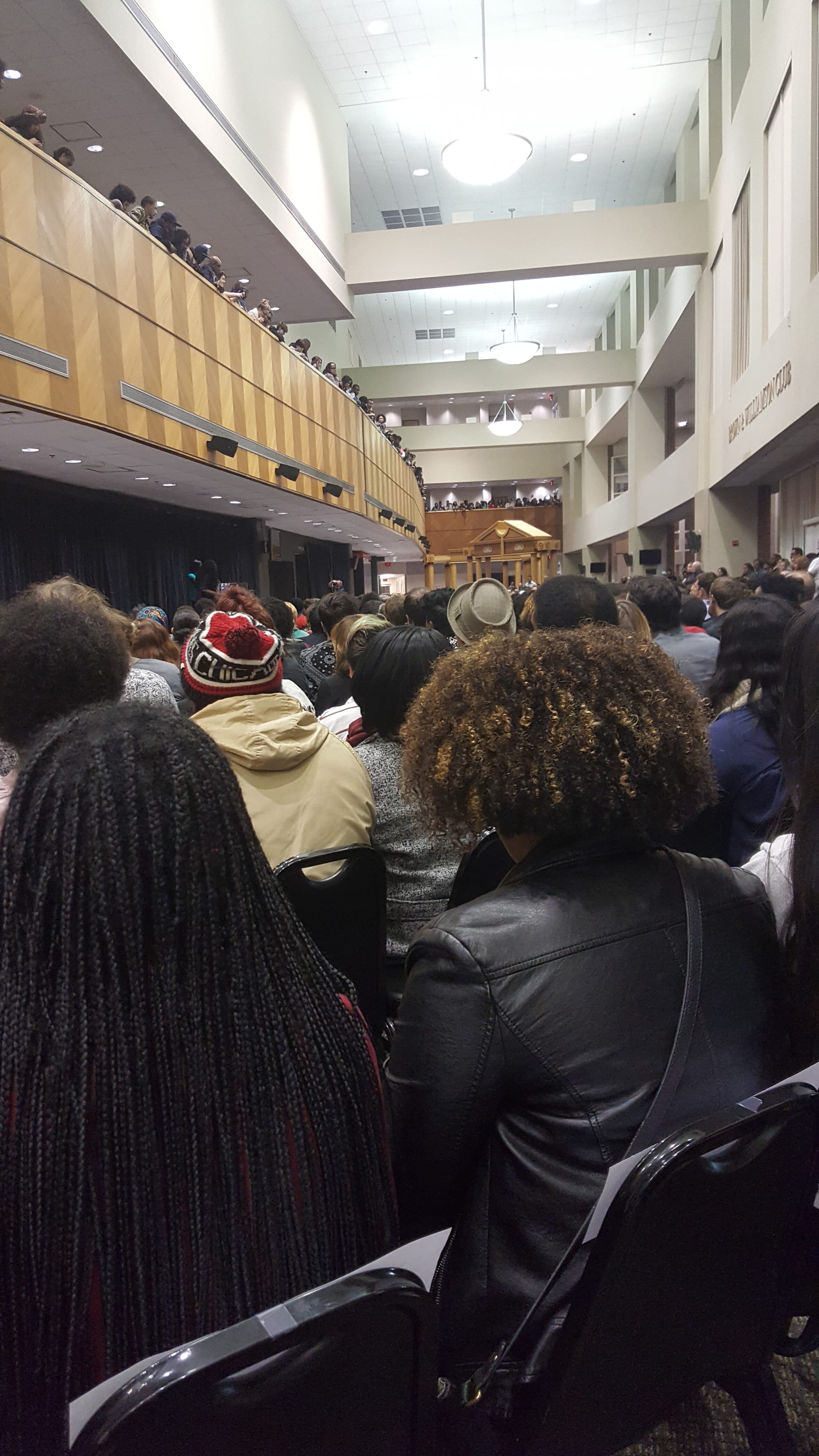By Shelby Brown —
Professor and political activist Angela Davis gave the 10th annual Anne Braden Memorial Lecture Thursday night, talking about racism, sexism, history and politics.
People lined up at Papa Johns Cardinal Stadium hours before the doors opened. With the speakers set to begin at 6 p.m. in the Brown and Williamson Club, posting a capacity of 800, police turned away a line of more than 300 people hoping to hear Davis speak. The line caused the event to be delayed about 50 minutes.
“The line was circling the stadium, I was blown away,” said Arts and Sciences Dean Kimberly Kempf-Leonard. “It was so important to highlight the importance of the event, especially with the budget cuts this past year. It was a wonderful turn out.”
Davis followed author Hannah Drake, who performed several poems about social injustice. Drake was particularly inspired by Davis.
“She’s the epitome of revolution,” Drake said, “I was shocked, honored and humbled to be here with her.”
Pan African Studies graduate student Antron Mahoney introduced Davis. He spoke of her accomplishments as an activist and the trail she blazed.
“I have many what-would-Angela-Davis-do moments,” Mahoney said.
Davis took the stage to thunderous applause. She spoke with a passion, intelligence and eloquence born of a lifetime of experience. She wasted no time addressing the news of president-elect Donald Trump. “We have to reach deep down and find the energy and enthusiasm to continue,” Davis said.
She spoke frankly about a political system in desperate need of reform.
“If we did not have the obsolete institution called the electoral college, Donald Trump would not have won,” Davis said. “The electoral college is a relative slavery, it reminds us that slavery is still with us.”
Along with a reform of the United States’ political system, Davis called for a second look at feminism, citing the reported 53 percent of white women who voted for Trump.
“This shows a failure of a certain type of feminism. This election showed the inadequacies of a feminism that fails to address class, race, sexuality and nation that some of us have been fighting for and there is no excuse,” Davis said.
Historically, feminism has been geared towards white women, like the suffragette movement. Intersectional feminism strives for a more inclusive and diverse feminism.
Davis said Hillary Clinton was operating with “outmoded feminism” and “didn’t even appeal to white, middle class.”
“It’s not about shattering the glass ceiling,” Davis said. “It’s about reaching down to the bottom and helping others up.”
Davis also had critiques of the world’s romance with capitalism. She mentioned Bernie Sanders, his focus on the middle class and her dissatisfaction that none of the candidates had their eye on the working class.
“We need a socialist revolution, I’m just going to say it,” Davis said. “A revolution that’s also anti-racist and feminist in the broadest sense.”
Davis acknowledged the need for mourning the outcome of the election.
“We cannot mourn indefinitely,” she said, “We have to regroup and organize.”
She addressed organized groups, like the indigenous peoples in North Dakota protesting oil pipelines and Black Lives Matter, and gave them encouragement.
“Black Lives Matter is not a statement of exclusion. If ever we can reach a place where black lives ever truly matter then all lives will matter.”
Davis said people must beware of trying to assimilate, warning black people trying to fit into a racist environment and women trying to fit into misogynistic environments.
“The structure itself is racist,” Davis said. “It is a question of transforming society.”
“If Hillary Clinton had been elected, I am sorry to say, we wouldn’t see that we are in a state of emergency. We need a new political party, a revolutionary party. We need a revolution.”
Photo by Olivia Krauth / The Louisville Cardinal




